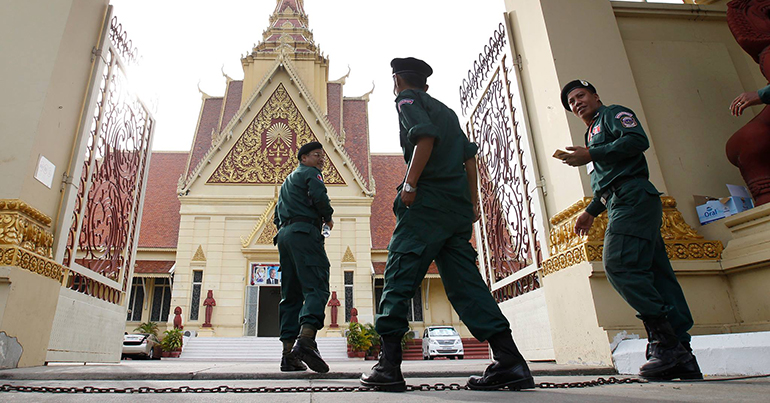The ruling could see politicians who are part of the country’s opposition party being banned from participating in politics for the next five years

The Supreme Court of Cambodia is set to rule on whether or not the lead opposition party, the Cambodia National Rescue Party (CNRP), will be dissolved after the Ministry of Interior lodged a complaint against them last month.
The CNRP has been accused of staging a ‘colour revolution’, a reference to the popular global uprisings that have seen the overthrowing of major rulers, such as the ‘green revolution’ that sparked the Arab Spring back in 2011.
Hun Sen has held the office of prime minister for 32 years and many analysts speculate that this latest move to dissolve the main opposition party is the leader’s final attempt to secure his position for the July 2018 general election.
Though the ruling has not yet been issued, the government has been hinting in the weeks leading up to today’s ruling that a guilty verdict for the CNRP is inevitable.
Last night, the US-based Human Rights Watch issued a statement about the decision, warning that Cambodia’s democracy “faces death” if the Supreme Court rule in favour of dismantling the opposition, which would essentially render the country a one-party state.
“Prime Minister Hun Sen seems afraid that he will lose elections scheduled for 2018, so he is using the nuclear option to destroy the opposition,” said Brad Adams, Asia director.
“Although the Supreme Court is effectively an organ of the ruling party, it has a historic chance to show some independence and uphold the rule of law.”
This is a roadblock map for tomorrow. Supreme Court President Dith Munty, a member of the CPP’s powerful permanent committee and was part of a trusted circle of advisers to the premier, will be directly involved in making the final call that Hun Sen claimed it must be dissolved.. pic.twitter.com/WPjC3FFog4
— Mech Dara (@MechDara1) November 15, 2017
The specific charges that are being brought against the CNRP could also see the 100 politicians who are part of the opposition being effectively banned from participating in politics for the next five years.
Upon dissolution, the government has already said they will redistribute the seats won by members of the CNRP from the 2017 commune elections and the 2013 national elections – an election that nearly saw the unseating of the ruling party – to the CPP.
In preparation ahead of the court’s decision, the government had already begun to issue warnings on Wednesday about an increased authority presence outside the Supreme Court and in many provinces outside of the country’s capital, including Kampot, Pursat, Koh Kong, Svay Rieng and Kampong Cham, the Phnom Penh Post reported.
And in a letter released by the interior ministry on Monday, the deputy prime minister, Sar Kheng, placed all governors to be on call for the November 16 decision saying, “to monitor and settle on a prompt basis various issues of concern in connection with any acts of trickery aimed at overthrowing our legitimate government.”
There is an increased police presence outside of the Supreme Court in Phnom Penh and the authorities have been urged to be on the lookout for any signs of unrest.
“We won’t allow any rallies or protests,” said Khieu Sopheak, a spokesman for the ministry of interior, to AFP.

